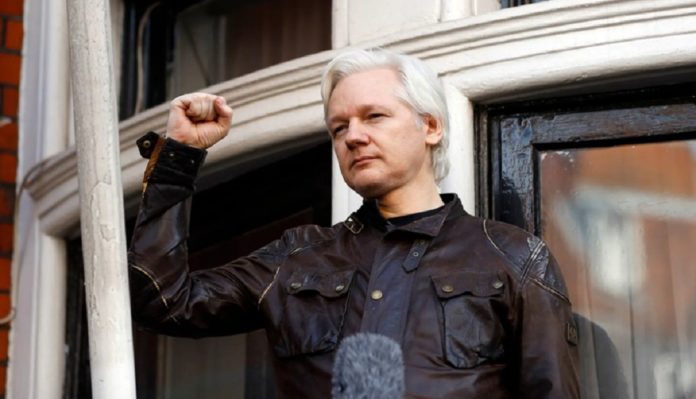The U.K.’s Home Secretary Priti Patel has officially signed an order to extradite WikiLeaks founder Julian Assange to the United States, where he faces espionage charges, the Home Office announced Friday.
In a hearing in April, U.K. Home Secretary Priti Patel moved to solidify Assange’s transfer to the U.S. after a multi-year legal battle that had him held in prison.
According to the Home Office, Assange has 14 days to appeal Friday’s decision.
Britain’s Home Office said in a statement Friday that U.K. courts have not found that extradition of Julian Assange would be incompatible with his human rights.
TRENDING: Dr. Simone Gold Sentenced to Prison For Speaking with Megaphone Inside US Capitol on January 6
“The U.K. courts have not found that it would be oppressive, unjust or an abuse of process to extradite Mr. Assange. Nor have they found that extradition would be incompatible with his human rights, including his right to a fair trial and to freedom of expression, and that whilst in the U.S. he will be treated appropriately, including in relation to his health,” it said.
The Home Office clarified his right to appeal the decision by saying, “Mr Assange has the right to apply to the High Court for leave to appeal against the decisions of both the District Judge and the Secretary of State’s decision to order extradition. An application must be made within 14 days of Mr. Assange being notified of the Home Secretary’s decision.”
Assange has been fighting extradition to the United States. U.K. Judge Vanessa Baraitser denied an extradition request by the U.S. government last year due to concerns over Assange’s mental health.
Judge Baraitser’s ruling was overturned in an appeal by the U.S. government in December. The move prompted Assange’s legal team to petition the U.K.’s highest court for an appeal of their own.
In March, NBC News reported that the court refused his appeal because the case “didn’t raise an arguable point of law.”
“Monday’s news narrows Assange’s options, but his defense team may still seek to take his case to the European Court of Human Rights or challenge the original judge’s other findings,” the report explains. “Barry Pollack, Assange’s U.S.-based lawyer, said Monday that it was ‘extremely disappointing’ that Britain’s Supreme Court is unwilling to hear the appeal.”
Assange is wanted in the U.S. on 18 criminal charges after his news organization published thousands of classified documents in 2010. If convicted, he faces a sentence of up to 175 years in prison.
The Wikileaks documents in question revealed that the U.S. military had killed hundreds of civilians in unreported incidents in Afghanistan. Other leaked records showed that 66,000 civilians had been killed and prisoners tortured by Iraqi forces.
The U.S. says the publication of those documents broke the law and endangered lives. However, Assange says the legal action of the U.S. is politically motivated.
Last January, a lower judge ruled that while the U.S. had a case to prosecute Assange, he could not be sent from the U.K. to stand trial because there was no guarantee that American authorities would assure his safety while imprisoned.
Amid fears that he would be subject to intense solitary confinement, lawyers for Assange argued his mental health meant the U.S. would likely not stop him from taking his own life.


